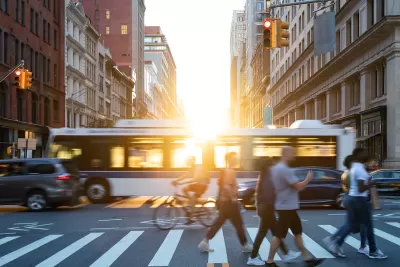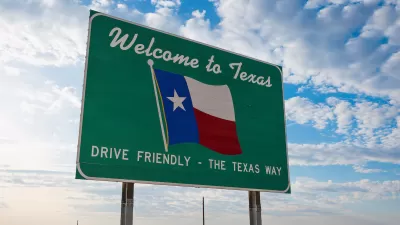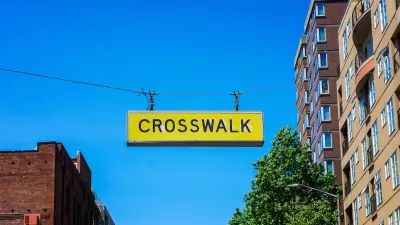Whether it’s a preference for highway expansion, passenger rail, or bike infrastructure, different administrations can shift grantmaking priorities at the federal level.

New research from the Urban Institute examines how much presidential administrations impact federal transportation funding — and it turns out the influence is significant. According to UI researcher Yonah Freemark, “There are different political priorities for different administrations, and we should be thinking about that when having conversations about the role of the president and other people in the federal administration.”
As Dan Zukowski explains in Smart Cities Dive, “The Obama administration favored transit projects while the Trump administration prioritized road expansion, the report says. The Biden administration focused on bike and pedestrian projects to a larger extent than either previous administration.”
The report suggests four ways to make federal funding more equitable and ensure it reaches the communities that need it most: prioritizing applications from low-income communities, assisting communities with the application process to ensure underresourced communities don’t get left behind, assessing the benefits and drawbacks of infrastructure projects, and improving the transparency of federal grantmaking programs.
FULL STORY: How the White House influences transportation grantmaking

Planetizen Federal Action Tracker
A weekly monitor of how Trump’s orders and actions are impacting planners and planning in America.

Maui's Vacation Rental Debate Turns Ugly
Verbal attacks, misinformation campaigns and fistfights plague a high-stakes debate to convert thousands of vacation rentals into long-term housing.

Restaurant Patios Were a Pandemic Win — Why Were They so Hard to Keep?
Social distancing requirements and changes in travel patterns prompted cities to pilot new uses for street and sidewalk space. Then it got complicated.

In California Battle of Housing vs. Environment, Housing Just Won
A new state law significantly limits the power of CEQA, an environmental review law that served as a powerful tool for blocking new development.

Boulder Eliminates Parking Minimums Citywide
Officials estimate the cost of building a single underground parking space at up to $100,000.

Orange County, Florida Adopts Largest US “Sprawl Repair” Code
The ‘Orange Code’ seeks to rectify decades of sprawl-inducing, car-oriented development.
Urban Design for Planners 1: Software Tools
This six-course series explores essential urban design concepts using open source software and equips planners with the tools they need to participate fully in the urban design process.
Planning for Universal Design
Learn the tools for implementing Universal Design in planning regulations.
Heyer Gruel & Associates PA
JM Goldson LLC
Custer County Colorado
City of Camden Redevelopment Agency
City of Astoria
Transportation Research & Education Center (TREC) at Portland State University
Jefferson Parish Government
Camden Redevelopment Agency
City of Claremont





























